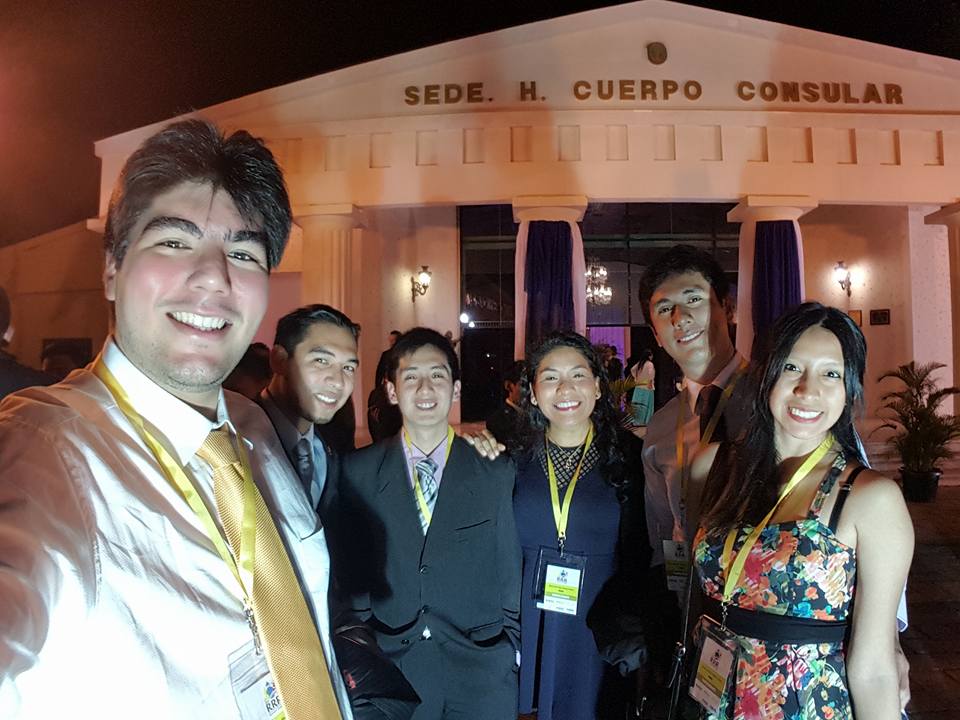
Enrique Vidal, graduate of Mechatronics Engineering, and students Enrique Macchiu, of Mechatronics Engineering, and Jordi Villanueva, of Electronic Engineering, who is also the chairperson of the student branch, commented on the awards obtained.
What does IEEE RRR 2016 mean?
One of the international activities organized by IEEE is the Regional Branch Meeting (RRR, by its Spanish acronym), and event that takes place annually at the South America, Center American and The Caribbean level (Region 9 of IEEE) and congregates several student branches of this region. This year, more than 25 universities participated. Thus, several activities related to technology and engineer professional training are conducted, e.g. contests. This year, thanks to the support from the School of Science and Engineering of PUCP, we participated in the RRR that took place in Guayaquil –Ecuador and, in these contests, we won two, at the level of Region 9: first place in the Contest Ethics Case, and second place in the Contest Success Case.
What was the Ethics Contest?
The presented problem was the harmful effect of high voltage line installations near urbanizations and protective net installation suggested by the engineer, which was not approved by the contractor due to extra cost of project, ordering to continue with the work. The dilemmatic question proposed by the engineer, under these circumstances, is if the work has to be continued or its position regarding the protective red installation has to be reaffirmed. Through articles 1, 2, 3, 5 and 7 of the IEEE Ethics Code, the following position was formulated: the engineer should reaffirm and explain his position about harmful effects of the project and the significance of protective nets, to prevent from affecting neighboring population, in this sense, technology comprehension is improved and society’s welfare is sought.
What was the Contest Success Case?
Our student branch presented VIDA project, developed by the student technical chapter IEEE Consumer Electronics Society (CESoc) PUCP. This project consists of promoting approaching to technology, both in the university and school community, and project development through teaching videogames. As a result, first student technical chapter CESoc was formalized at Latin American level, development groups of videogame projects were formed, applications and IoT, and the number of organization volunteers increased.